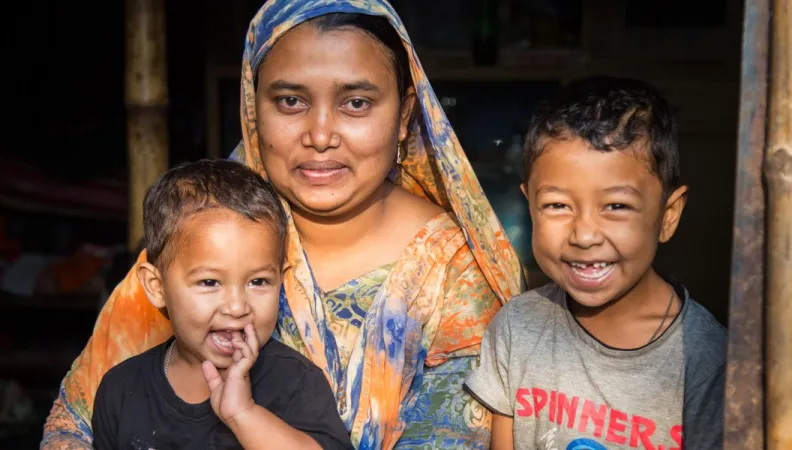Share the page
Supporting Bangladesh’s response to the Covid-19 crisis
Project


-
Project start date
-
Status
Ongoing
-
Project duration
-
20 years
-
AFD financing amount
-
150 000 000 €
-
Country and region
-
Location
-
Bangladesh
-
Type of financing
-
Beneficiaries
-
Government of the People’s Republic of Bangladesh
AFD is supporting Bangladesh’s Covid-19 response through a social protection program benefiting vulnerable groups including the elderly and people with disabilities.
Contexte
The economic and social development of Bangladesh is constrained by limited access to reliable energy sources at affordable prices, the lack of quality infrastructure, and the oversupply of low-skilled labor concentrated in agricultural activities, the high level of its informal economy and insufficient and complex regulation.
Furthermore, this densely populated country is experiencing rapid urbanization, leading to overcrowding and poverty in cities. Bangladesh is also facing extreme vulnerability to natural disasters, which is aggravated by the overexploitation of natural resources and the impacts of climate change.
The health and economic effects of the COVID-19 epidemic are likely to exacerbate the existing constraints and undermine the recent progress of Bangladesh. Following Cyclone Amphan, on 25 May 2020, the French President sent a letter to Sheik Hasina, Prime Minister of Bangladesh, ensuring France’s support to face the challenges of ongoing crisis.
The project funded by AFD is a means to support the Government of Bangladesh’s efforts to address the Covid-19 crisis.
Descriptif
The project will contribute to modernize the social protection system and to assist to households and individuals affected by the social and economic consequences of the Covid-19 epidemic. The Project embeds resilience in its core design to respond to various poverty and deprivation risks by allocating unconditional cash transfers to the elderly in the form of old age allowances, widow allowances, disability allowance and Disabled Students Stipend. These benefits will increase beneficiaries’ access to cash to meet immediate subsistence needs during and after natural disasters. It would also help digitize beneficiary information and modernize systems to make payments using biometrically authenticated processes.
Impacts
- Improved transparency and efficiency of selected cash transfer programs for vulnerable populations by modernizing service delivery
- Decelerating the rise in the rate and severity of poverty, by contributing to maintaining existing cash transfers that benefit poor and vulnerable households
- Increased resilience and improved capacity to response future shocks though modernization of social protection programs


